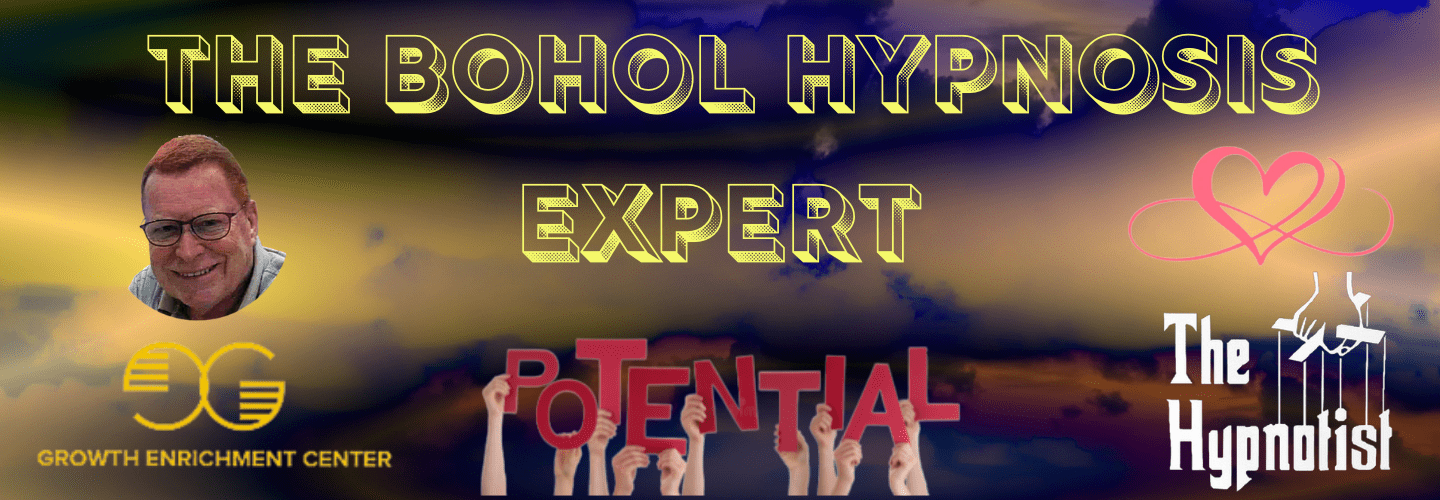
Overcome fear of talking to people with hypnosis, EFT, and NLP. These techniques address root causes, instill confidence, and reframe negative beliefs for lasting change. Experience relaxation, empowerment, and profound results. Tapping scripts and NLP strategies can target specific fears, enhance social confidence, and rewire the subconscious mind positively. By combining these approaches, individuals can navigate conversations with ease. Embrace social situations with newfound confidence and resilience. Explore how these powerful tools can transform your social interactions and boost your self-assurance.
Understanding Fear of Social Interaction
Understanding the intricacies of social anxiety can provide valuable insights into the complexities of fear surrounding social interactions. Social anxiety, characterized by an intense fear of judgment or negative evaluation in social situations, can have a profound impact on an individual's quality of life.
Fear management is essential in addressing social anxiety, as it can impede one's ability to engage in everyday activities and form meaningful connections with others. Individuals experiencing social anxiety may avoid social gatherings, experience physical symptoms like sweating or trembling, and struggle with low self-esteem.
To effectively manage the fear associated with social anxiety, it is vital to recognize and challenge negative thought patterns, gradually expose oneself to feared situations, and develop coping strategies such as deep breathing or positive self-talk. Seeking support from mental health professionals, participating in therapy, and exploring techniques like hypnosis, EFT, or NLP can also be beneficial in overcoming social anxiety.
Benefits of Hypnosis for Social Anxiety

Hypnosis offers individuals with social anxiety an effective and non-invasive approach to managing their fear and enhancing their ability to navigate social interactions with confidence. By tapping into the subconscious mind, hypnosis can target the root causes of social anxiety, helping individuals reframe negative thought patterns and beliefs that contribute to their feelings of unease in social settings.
One of the primary benefits of hypnosis for social anxiety is the promotion of social confidence. Through guided hypnotherapy sessions, individuals can build a strong sense of self-assurance and develop coping mechanisms to handle social situations with ease. This newfound confidence enables them to engage more comfortably with others, express themselves authentically, and form meaningful connections.
Furthermore, hypnosis is effective in providing anxiety relief by inducing a state of deep relaxation and calmness. This relaxation response counteracts the physiological symptoms of anxiety, such as rapid heartbeat and shallow breathing, allowing individuals to approach social interactions from a place of inner peace and stability. Ultimately, hypnosis empowers individuals to overcome their social anxiety and embrace social situations with greater ease and confidence.
Exploring Emotional Freedom Techniques (EFT)

Have you explored the potential benefits of incorporating Emotional Freedom Techniques (EFT) into your journey towards overcoming social anxiety and enhancing your emotional well-being? EFT is a powerful tool that can help individuals address their fears and phobias in a gentle yet effective way.
Here are some key benefits of EFT:
- Reduction of Anxiety: EFT can help alleviate feelings of anxiety and stress related to social interactions.
- Increased Self-Confidence: Through EFT, individuals often report a boost in self-confidence, making it easier to engage with others.
- Emotional Regulation: EFT assists in regulating emotions, allowing individuals to manage their reactions in social situations better.
- Release of Negative Emotions: Many users of EFT have experienced a release of pent-up negative emotions, leading to a sense of emotional freedom.
- Improved Communication: EFT can enhance communication skills by reducing the fear associated with talking to people.
Testimonials from individuals who have tried EFT often highlight its effectiveness in addressing social anxiety and phobias, making it a valuable technique to explore on your path to personal growth and well-being.
NLP Techniques for Overcoming Phobias

When dealing with phobias, it is crucial to investigate techniques like Neuro-Linguistic Programming (NLP) for relief.
NLP provides strategies to reframe thought patterns and behaviors linked to fear, offering a practical method for conquering phobias.
Integrating NLP with other modalities such as EFT and hypnosis can provide extensive advantages in tackling and resolving fears.
NLP Phobia Relief Strategies
Utilizing NLP phobia relief strategies can empower individuals to overcome deep-rooted fears in a transformative and effective manner. These strategies focus on subconscious reprogramming and fear release, facilitating confidence building and mindset transformation.
Here are five key techniques for overcoming phobias:
- Anchoring: Creating a positive emotional response linked to a specific trigger.
- Visual Swish Pattern: Using mental imagery to replace negative associations with positive ones.
- Parts Integration: Resolving inner conflicts by integrating conflicting parts of the psyche.
- Meta-Modeling: Challenging and restructuring limiting beliefs through precise questioning.
- Timeline Therapy: Addressing past traumas and negative experiences to reframe perceptions and emotions positively.
Employing these NLP techniques can lead to profound shifts in perception and behavior, enabling individuals to conquer their fears and live more fulfilling lives.
EFT for Fear
Addressing fear through EFT, a powerful NLP technique, offers individuals a transformative pathway to overcoming phobias and reclaiming a sense of empowerment in their lives.
EFT tapping, a cornerstone of this approach, involves gentle tapping on specific acupressure points while focusing on the fear or phobia. This technique helps in disrupting the negative thought patterns associated with the fear, allowing individuals to release emotional distress and anxiety.
Hypnosis Benefits
Strategically employing hypnosis techniques within the framework of Neuro-Linguistic Programming (NLP) can be a game-changer for individuals seeking to conquer phobias and cultivate a newfound sense of emotional resilience. When it comes to hypnosis benefits in the context of NLP techniques for overcoming phobias, the transformation can be profound.
Here are five key benefits:
- Hypnosis facilitates deep relaxation, enabling individuals to access their subconscious mind more effectively.
- It helps reframe negative thought patterns, promoting a significant shift in perception.
- Hypnosis can uncover and address underlying traumas or triggers contributing to the phobia.
- It enhances self-confidence and self-esteem, essential for overcoming social anxiety.
- Hypnosis combined with NLP empowers individuals to develop new coping mechanisms and behavioral responses.
Combining Hypnosis and NLP for Results

By integrating the powerful techniques of hypnosis and NLP, individuals can achieve profound results in overcoming their fear of talking to people. Hypnosis, with its ability to access the subconscious mind, can help reframe negative thought patterns and instill confidence. NLP, on the other hand, provides practical tools for changing behaviors and improving communication skills. When these two approaches are combined, they create a synergistic effect that can lead to lasting transformation.
Incorporating EFT deep relaxation techniques into this integration further enhances the process. EFT, or Emotional Freedom Techniques, involves tapping on specific meridian points while focusing on the fear or phobia. This helps release emotional blockages and reduces anxiety levels, allowing individuals to approach social interactions with greater ease and calm.
Through the complementary aspects of hypnosis, NLP integration, and EFT deep relaxation, individuals can address the root causes of their fear of talking to people and develop new ways of thinking and behaving in social situations. This holistic approach empowers individuals to navigate conversations with confidence and authenticity.
EFT Tapping Scripts for Social Confidence

Enhancing social confidence through EFT tapping scripts involves guiding individuals in a structured process to alleviate anxiety and boost self-assurance in social interactions. EFT, or Emotional Freedom Technique, is a therapeutic tool that combines acupressure with psychological interventions to address emotional challenges.
When using EFT tapping scripts for social confidence, practitioners focus on specific statements and tapping sequences to target social fears and enhance feelings of self-assurance. Here are five key elements to contemplate when working on social confidence with EFT:
- Identifying specific social fears that are holding you back.
- Creating personalized tapping scripts that address these fears directly.
- Incorporating positive affirmations into the tapping process to boost confidence.
- Practicing EFT tapping regularly to reinforce positive beliefs about social interactions.
- Monitoring your progress and adjusting the scripts as needed to continue building confidence.
Overcoming Fear of Rejection With NLP

Overcoming the fear of rejection can be a challenging barrier to forming meaningful connections.
Through the lens of NLP techniques, individuals can learn to reframe their fear of rejection, build confidence, and navigate social interactions more effectively.
NLP Techniques for Rejection
When faced with the fear of rejection, individuals can utilize NLP techniques as powerful tools for transforming their mindset and responses to social interactions. Here are five NLP techniques to help overcome the fear of rejection:
- Anchoring: Create positive anchors to associate rejection with a positive feeling.
- Swish Pattern: Replace negative thoughts of rejection with positive images of acceptance.
- Visual-Kinaesthetic Dissociation: Mentally disconnect from the fear of rejection to reduce its impact.
- Changing Modalities: Shift from visualizing rejection to auditory or kinesthetic representations.
- Future Pacing: Visualize successful social interactions to build rejection resilience and confidence.
NLP Reframing Fear
How can individuals harness the power of NLP techniques to reframe their fear of rejection and cultivate a more confident and resilient mindset in social interactions?
NLP reprogramming techniques offer valuable tools to address fear of rejection effectively. By using NLP techniques, individuals can reframe their thoughts around rejection, viewing it as a learning opportunity rather than a personal failure.
Overcoming speech anxiety is a common challenge tied to the fear of rejection, and NLP provides strategies to manage and conquer this fear. Through techniques like visualizations, anchoring positive emotions, and changing internal dialogue, NLP empowers individuals to shift their mindset and responses to rejection, fostering greater self-assurance and resilience in social interactions.
NLP Building Confidence
Exploring the world of social interactions can be a challenging task for many, especially when grappling with the fear of rejection; however, utilizing NLP techniques to build confidence can be a transformative journey towards fostering a more resilient mindset. NLP offers practical tools and strategies to help individuals overcome their fear of rejection and boost their self-assurance.
Here are five ways NLP can assist in building confidence and shifting mindset:
- Anchoring Techniques: Using anchors to access resourceful states in moments of self-doubt.
- Reframing Negative Beliefs: Transforming limiting beliefs into empowering ones.
- Visualizing Success: Utilizing visualization to enhance confidence and self-belief.
- Modelling Confidence: Learning from confident individuals to emulate their behaviors.
- Language Patterns: Using positive language patterns to rewire the subconscious mind for confidence.
Maintaining Social Confidence Long-Term

Maintaining long-term social confidence requires consistent practice, self-awareness, and ongoing commitment to personal growth and development. To sustain confidence in social interactions, it is crucial to continue implementing confidence-building techniques and managing social anxiety effectively. Regularly engaging in activities that challenge your comfort zone, practicing positive self-talk, and visualizing successful social interactions can help reinforce your confidence over time. Additionally, staying mindful of your thoughts and emotions during social encounters can enable you to address any underlying anxieties or insecurities that may arise.
Creating a support system of friends, family, or a therapist can provide a safe space to discuss your social fears and receive encouragement. Setting realistic goals for social interactions and celebrating small victories along the way can boost your self-esteem and motivation. Remember that building and maintaining social confidence is a journey that requires patience and perseverance. By consistently applying these strategies and remaining committed to your personal growth, you can cultivate lasting social confidence and thrive in various social settings.
Frequently Asked Questions
Can Hypnosis, Eft, and NLP Techniques Be Used to Overcome Other Types of Fears or Phobias Besides Social Interaction?
Fear management techniques such as cognitive restructuring, exposure therapy, and mindfulness practices are effective in treating various fears and phobias beyond social interaction. These methods offer practical and empathetic approaches to help individuals overcome their specific fears.
Are There Any Potential Side Effects or Risks Associated With Using Hypnosis, Eft, or NLP for Addressing Fear of Talking to People?
When considering addressing fears such as talking to people, it is important to evaluate potential risks and long-term effects of any chosen method. Understanding these aspects can help individuals make informed decisions about their mental health journey.
How Long Does It Typically Take to See Results When Using Hypnosis, Eft, and NLP for Social Anxiety?
Progress timelines for addressing social anxiety vary based on individual factors. Success stories often show improvements within weeks to months. Therapeutic techniques aim for emotional healing gradually. Consistent practice and professional guidance enhance results.
Can These Techniques Be Used in Conjunction With Traditional Therapy or Medication for Social Anxiety?
In the domain of mental health, the integration of alternative approaches like hypnosis, EFT, and NLP with traditional therapy or medication can create a potent combination therapy. This holistic approach offers a multifaceted strategy for addressing social anxiety with depth and efficacy.
Are There Any Specific Qualifications or Certifications to Look for When Seeking a Practitioner Who Specializes in Using Hypnosis, Eft, and NLP for Overcoming Fear of Talking to People?
When seeking a practitioner for fear of talking to people, prioritize qualifications and experience in hypnotherapy, EFT, and NLP. Look for certifications from reputable institutions and guarantee ethical practices and effective techniques are employed for best results.
Conclusion
To sum up, by utilizing hypnosis, EFT, and NLP techniques, individuals can effectively overcome their fear or phobia of talking to people. These tools offer practical solutions for managing social anxiety and building confidence in social interactions.
Through consistent practice and application of these methods, individuals can experience long-term benefits and maintain their social confidence. Embracing these techniques can lead to a deeper understanding of oneself and a greater sense of empowerment in social situations.
Take the Next Step
Do not be afraid to reach out to me, Mark E Wilkins, to assist you in any issues you might have. Most Hypnotherapy sessions last 2 hours and EFT Sessions are usually handled with one session. Life Coaching is 45 minute session, once a week. Self-Hypnosis is taught in one session, and lasts a lifetime.
To make an appointment, first listen to the Pre-talk and fill out he Complementary Healthcare Provider Disclosure. The use the Contact Form to request an appointment with the Bohol Hypnosis Expert.
Self-help downloads are available. The self-hypnosis program to teach you how to self-hypnotize is here.





